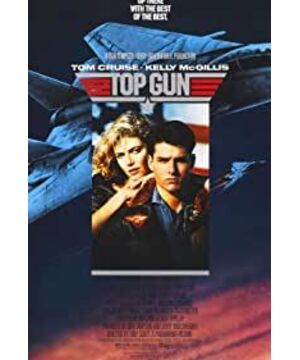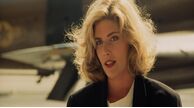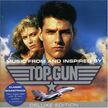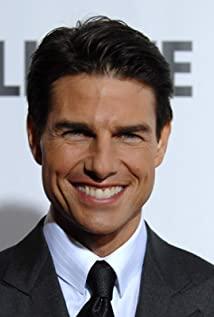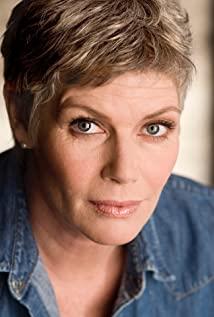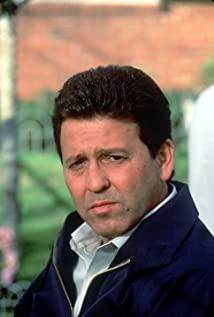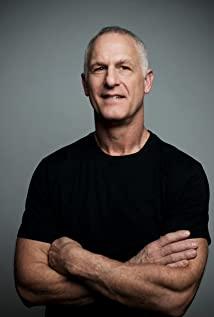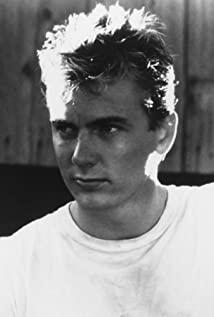As a conscription propaganda film, the film shows outstanding friendship between comrades-in-arms. What touched me the most was the sympathy between Iceman and Maverick. There is no entanglement with dog blood, but it is very comfortable to watch.
Iceman is obviously the kind of student in the school who is excellent in both academic and academic performance, regardless of his intelligence, physical strength and perseverance (Iceman is so handsome, I am crazy); the reason he dislikes Maverick is that an unpredictable pilot puts his teammates in danger (It can also be seen from Goose's complaint). Conversely, Maverick does not have unreasonable jealousy or contempt for Iceman. From the daily training perspective, Maverick always regards Iceman as a respected and pursued target. It should be said that the conflict between the two elites does not come from interests (best struggle), but from differences in concepts.
However, this is what I cannot accept the most: the conflict of ideas between the two heroes did not reach a reasonable reconciliation or balance in the end, but collapsed inexplicably on the one hand and forcibly achieved the hero's aura of the protagonist.
After the battle, Iceman looked admiring and said to Maverick, "You can be my comrade-in-arms at any time." As the Top one pilot of Top Gun, Iceman undoubtedly announced (to the audience): Maverick has integrated into this elite team. To be more precise, it was Maverick who convinced/conquered his teammates, he was a well-deserved hero.
As Maverick flew over the control tower, Iceman changed his attitude. However, when you think about it, this change is very contradictory. Iceman doesn't like Maverick because he is unruly, unpredictable, and dangerous to his teammates. Looking at how horrified the correspondent on the same plane was when Maverick tried to fly low to attract the enemy plane in the end, we knew that the danger of Maverick had not changed at all. Rather than saying that Maverick has become more important to teammates and knows how to cooperate, it is better to say that other teammates have no choice but to accommodate Maverick in a crisis, and the Lone Ranger once again wins the bet with the protagonist's halo. If Iceman gave up his original values just because he was saved by Maverick's wicked ideas, then he would be too sorry for his name as Top One.
Looking back at the protagonist himself. The impression left by Hollywood movies is that the protagonist is always on the way to know himself, identify with himself, overcome himself, and complete himself. I think the same is true of this story. Therefore, when Goose died, I thought Maverick would go through a process of introspection, trial, suffering and transformation according to the general routine... But seeing the decisive battle Part, I never expected that the death of Goose left Maverick only fear.
At the beginning and the end of the story, there are two battles against MiG fighters, which are very neat. Both times the Lone Ranger frightened away the enemy plane with the stunned teammates. In contrast, there was no essential change or surpass. In the end, the dangerous and rebellious personality of most of the film and the identity of the deserter are gone-as long as the directors offer a battle of redemption, his life will be completed. Then what is he going to defeat? It's just a twist and fear in the middle of the story. What is the way to overcome fear? Accept the heroine's aggressive approach; hold onto the deceased teammate's name tag and recite the name of the teammate... ಠ_ಠ is a subjective point, which is still an understatement.
I probably misunderstood the core of this story. It is not about how to transform intuition, personality, madness, and rebellion into creativity. Combining with Iceman's unreasonable changes, I think this film has no intention of solving any "defects" or reconciling any conceptual differences. It just wants to tell (and even encourage) all young people who are rebellious or non-rebellious: Rebellion is infallible, and the world does not know it. Intuition, passion, personality, rebellion, and madness are creativity, vitality, and truth.
The unsparking hero and heroine are forced to fall in love, but it is just a footnote to this fanaticism. When the heroine first appeared on the stage, the film seemed to imply that the heroine approached the hero in exchange for career resources; after the chase, the heroine said that she fell in love with Maverick for no reason; left halfway (to motivate the worried hero), and after the triumphant victory (Inexplicably) Return, as a kind of compliment...this, maybe the heroine is a tool person? The emotional drama that is not clear seems to be set up to achieve the standard feature of the blockbuster.
In general, this film feels like coaxing a child. You can be rebellious, you can ignore the rules, you can rush to the sky with your feelings, and you can fall in love with the instructor based on your talents, because you are the genius we need in our team! But is it still so free and romantic after enlisting in the army? (I don’t understand the American army, but it’s not clear, but) In contrast, Billy Lynn’s military career looks more real.
View more about Top Gun reviews


